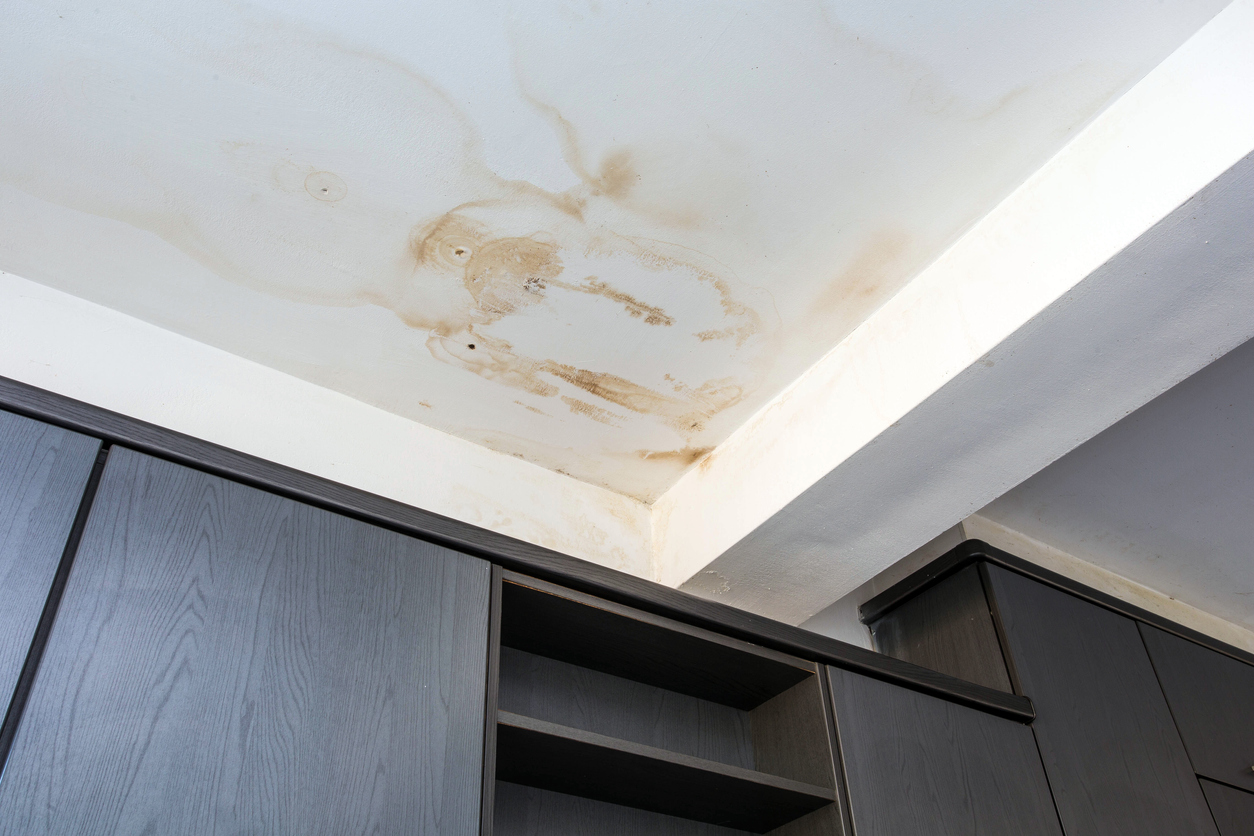Ombudsman awards resident £5,000 after severe maladministration finding for Sovereign
5 April 2023
The Ombudsman has found severe maladministration for how Sovereign dealt with a leak in a residents’ roof, awarding £5,000 in compensation for the failings and distress caused.

We awarded £5,000 in compensation after Sovereign’s inability to act on a leaking roof for 21 months left a vulnerable resident’s home uninhabitable.
We have also highlighted the importance of the landlord having a strong grip on its complaints handling ahead of its forthcoming merger.
The Hampshire resident contacted the landlord at least 37 times by phone during the 21 months and made regular references to the fact the ceiling had collapsed, the house was cold and that every time it rained he was having to empty multiple buckets of water.
While there were some contractor visits, the evidence does not indicate that there were any reasonable reasons for the delay in the repair.
On top of this, evidence indicated that the landlord did not make any substantive effort to consider the resident’s physical and mental health challenges, in responding to the resident’s service requests.
The landlord failed to treat the matter with the urgency it required when it became apparent how bad the condition of the property was and how much distress it was causing the resident and his family.
The resident felt that the landlord had not been held “accountable” and that necessary systemic changes have not been made.
We also raised concerns around the landlord’s compensation policy, where it mostly relied on “goodwill gestures” rather than compensation.
We are clear that the landlord’s corporate structure as a charity is not a reason for it not to pay compensation where its failings have caused significant distress and inconvenience to a resident.
In its learning from the case, Sovereign said it has introduced named caseworkers for vulnerable residents and introduced new processes to look at prioritisation of cases.
Additional to the £5,000 compensation, we ordered the landlord to review its treatment of repairs for vulnerable residents, its compensation where there is distress caused and its complaint handling.
Richard Blakeway, Housing Ombudsman, said: “The landlord’s failure to successfully undertake the repair in a timely manner led to the property becoming uninhabitable and caused significant distress and inconvenience for a vulnerable resident.
“When the landlord was made aware of the impact the situation was having on the resident, it failed to act with appropriate urgency.
“Whilst the landlord took some steps to address the impact of its failings – most notably rehousing the resident – these were not sufficient redress for the seriousness of the impact which the matter had on the resident.
“The landlord is about to experience significant organisational change and the pressures of mergers can often be reflected in complaints. It is vital for the landlord to have a strong grip on complaints handling and the issues leading to service failure.”
We also found maladministration for the landlord’s complaint handling after it failed to properly engage with the complaint at stage one and not escalating the matter to stage two until the Ombudsman intervened.
In all cases of severe maladministration, we invite the landlord to make a learning statement.
Sovereign learning statement
We are very sorry that in this case we did not handle our customer’s leaky roof as quickly as we should have done or handle his complaint properly. We did not sufficiently consider or act on the fact that our customer was vulnerable. We repeat here the apology to our customer and we have paid compensation.
We have reviewed our approach to vulnerable customers so that information is shared at every stage and that any customer’s vulnerability is explicitly considered, especially if they need to move house.
We have made several improvements including:
- In complex or high-risk cases, vulnerable customers will have a named case owner so that customers know who to contact.
- We have increased oversight and scrutiny of high-risk and/or complex cases.
- We have introduced new processes to prioritise complex repairs in a way that takes a vulnerable customer’s needs into account.
- We have added vulnerability flags to tradespeople’s handheld devices so that approaches are tailored to individual customers (e.g. for hard-of-hearing customers we remind our people to wait longer after knocking at a customer’s door.)
Our processes did not work in this case. We have been aware of the shortcomings in our processes for over two years and have been working hard to put them right in that time. We have made changes and are continuing to make changes to ensure lessons are learned. This issue has been taken very seriously at Sovereign at board level, throughout the senior leadership and our customer-facing teams.
We will continue to work to address the issues raised by this case and to work with the Ombudsman to ensure we always empathise with our customers and address their complaints as quickly as we can.
